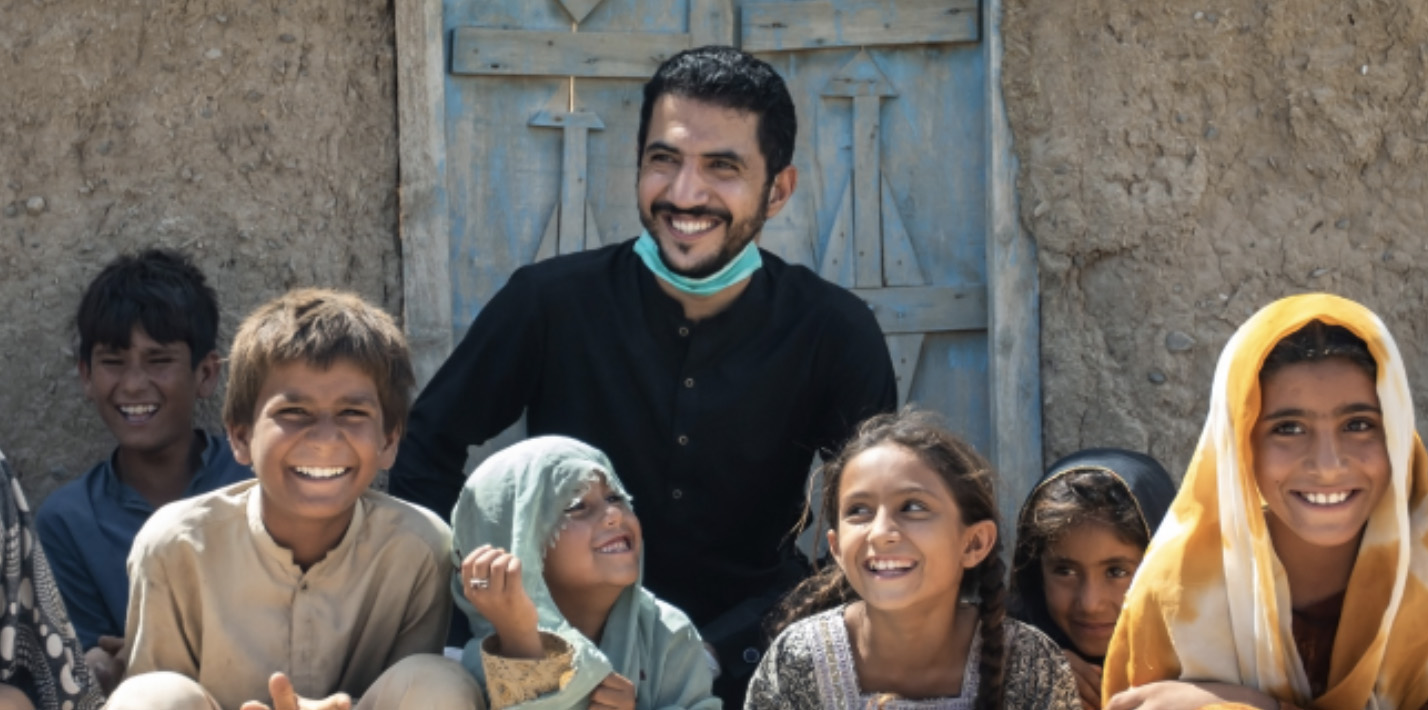https://arab.news/phwrn
- Bizenjo founded organization that supplied food to remote villages in Balochistan and PPE suits to health workers
- Now utilizing leftover resources to invigorate over 25 free libraries in different districts of Balochistan
RAWALPINDI: Billionaire philanthropist Bill Gates has named a Pakistani, Sikander Bizenjo from the southwestern Balochistan province, as an ‘unsung hero’ of the coronavirus pandemic.
In a blog post written on September 8 and called “7 unsung heroes of the pandemic,” the American business magnet listed seven “incredible people” who had cared for others after the coronavirus outbreak.
Bill Gates shares a video honoring seven people around the world, including Pakistan's Sikander Bizenjo, as "unsung heroes" of the coronavirus pandemic on his official Twitter account on September 12, 2020.
Writing about Bizenjo, Gates said he had founded a group called the Balochistan Youth Against Corona, “which raises funds for monthly food rations for 10,000 households in Balochistan as well of personal protective equipment, masks, face shields and hand sanitizers for frontline health workers.”
“I am overwhelmed,” Bizenjo, 29, told Arab News over the phone on Tuesday when questioned about the recognition from Gates. “It is not just about me or my team, but to see Balochistan in headlines for something positive makes me feel incredibly proud.”
“Everyone knows who Bill Gates is,” he said, laughing. “Even people in my village and other remote areas of the province have been excited about this.”

Balochistan Youth Against Corona Volunteers pack food products before delivering them around Balochistan on August 10, 2020. (Picture courtesy: Khaula Jamil for Gates Blog)
Bizenjo comes from Naal in Khuzdar district but lives and works in Karachi. He cofounded BYAC with Banari Mengal, with Khalid Ismail and Dr. Yasir Baloch as core team members.
“We began when the pandemic started,” said Bizenjo. “I was getting concerned about certain areas in Balochistan, thinking they would either get overlooked or be extremely hard to reach for aid workers and even the government.”
BYAC first started campaigning for donations to help feed and keep 10,000 families in the province healthy through food rations and home supplies.
“We started with food supplies because we wanted to make the lockdown successful,” Bizenjo said. “However, that would have required people to stay indoors to prevent the virus from spreading. This would only have been possible if they had enough food. Unfortunately, many people in these villages don’t have food for four days, let alone a whole month.”
Bizenjo and volunteers educate people about how to wash hands near Naal village in Khuzdar, Balochistan, on August 8, 2020. (Picture courtesy: Khaula Jamil for Gates Blog)
Bizenjo and his team, joined by hundreds of volunteers, began serving far flung villages inaccessible due to poor road infrastructure and provided enough rations, including soap bars, to keep families satiated for at least a month.
Soon after its operations began, Bizenjo’s organization shifted gears and also started providing personal protective equipment (PPE), such as face shields and N95 masks, to local hospitals. This was done at a time when Quetta was in the news as several doctors and paramedics in the provincial capital of Balochistan became infected with the coronavirus.
Now that infection numbers have dropped, BYAC is utilizing its leftover resources and collecting new donations to invigorate over 25 free libraries in different districts of Balochistan, Bizenjo said.

